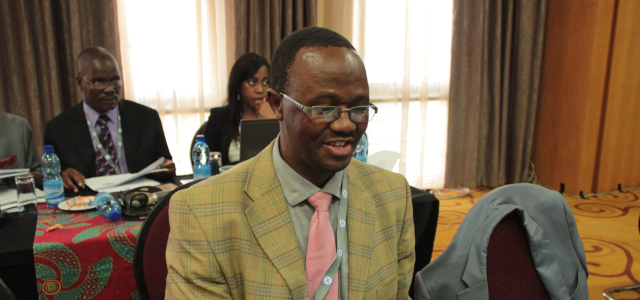Speaking during the official opening of the 3rd Zambezi basin stakeholders’ forum on Water-Energy-Food-Ecosystems Nexus for Socio-Economic Benefits in the Zambezi River Basin in Lilongwe, Malawi SADC Secretariat’s Program Officer in the Water Division, Dumisani Mndzebele revealed that the region needs a regional operational framework to facilitate investments through WEF Nexus approach.
He said that there is a huge potential for applying the Water-Food-Energy Nexus approach in the Southern Africa Development Community (SADC) region in enhancing investments for regional development.
Mndzebele said that SADC views the Nexus Approach as an opportunity for regional development contributing to wealth creation, entrepreneurship, hence jobs creation through value chains. He noted that a common understanding of the WEF Nexus approach will be major breakthrough in terms of fully domesticating it in terms of design and definition.
He noted that SADC had responded to challenges by creating regional dialogue platforms in promoting the WEF Nexus agenda in the region. He explained the SADC WEF Nexus conceptual framework with its two objectives. One is simultaneous water-energy-food security, and the other is promoting natural resource (water, land and energy) use efficiency.
Mndzebele said that the NEXUS approach will help to understand interdependence of subsystems of a system, examine the linkages, tensions and trade-offs across the WEF sectors, assess alternative Water, Energy & Food management, technology and governance options for resource use efficiency and develop win-win-win Water, Energy & Food security strategies.
Water, energy and food security are key priority areas for SADC and to respond to the context set above the SADC Secretariat is leading a multi-sector and stakeholder driven process maximising on cross-sectoral synergies and promoting the interconnectedness between water, energy and food security through adopting a nexus approach. Integrated planning of water, food and energy sectors and promoting regional cooperation has been considered as a strategy to simultaneously meet water, energy and food security targets, and to improve natural resource use efficiencies in the region.
WEF security nexus acknowledges that water security, energy security and food security are inextricably linked in the human system and that actions in any one area usually have impacts in the others. As the population increases, with increasing demands for basic services, and growing desires for higher living standards, the need for more efficient utilization of the vital resources (water, land, energy) in the natural system is required.
Since 2013, SADC has raised awareness on the need for the three sectors to work together, starting with the SADC Multi-Stakeholder Water Dialogue on exploring the Water, Energy and Food Nexus approach, convened in Lusaka, Zambia in October 2013, the SADC Multi-Stakeholder Dialogue on the central role of water in industrialisation, convened in Windhoek, Namibia in October 2015 and the SADC National Water Weeks held in 2015. The SADC Secretariat has now embarked on a programme that is setting up an operational nexus governance and investment framework that will drive the implementation of a nexus approach in the region
